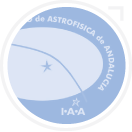Mars Exploration
Mars occupies a significant position in our quest for answers to some of the greatest questions, such as those regarding our origins and our place in the Universe. Together with the exciting search for extra-solar planets and the fast-growing field of archaeo-biology, understanding Mars is a critical step towards tangible answers to how life emerged on Earth and whether we are alone in the Universe. The last two decades have been the rise of an exciting era of exploration of Mars, with almost a dozen Mars missions. The time for further Mars exploration is here and now, with an unprecedent amount of recent data to analyze and a plethora of focused questions and revolutionary new observations to conduct.
Europe has invested heavily in Mars research, with two clear milestones: the successful MEx mission, launched in 2003, and the ExoMars launches in 2016 and 2020 in preparation for future Sample Return Mission. This is the critical moment to complete the exploitation of the first of these milestones, in a phase where new inter-team data analysis is needed. It is also the time to consolidate the knowledge gained from MEx and to point to the next European step towards Mars.
UPWARDS gathers active experts from MEx, including PIs and co-Is of many of its instruments, in a multi-disciplinary scientif program. Since the launch of Exomars took place in March 2016, its Mars Orbit insertion in November 2016 and its aerobraking phase may extend from March 2017 to February 2018, the three years project is perfectly timed to develop advanced tools critical for the exploitation of data from TGO mapping phase and a proven collaboration of expert teams.
The overall approach of UPWARDS consists of the synergistic combination of selected data from Mars missions, focused on MEx, the development of innovative tools to be tested on those data to obtain excellent new science and the delivery of an updated collection of science products based on a revision and extension of previous knowledge. As a result of a data assimilation technique, some of these products will be both global and time-evolving reference datasets..

Missions to Mars
































